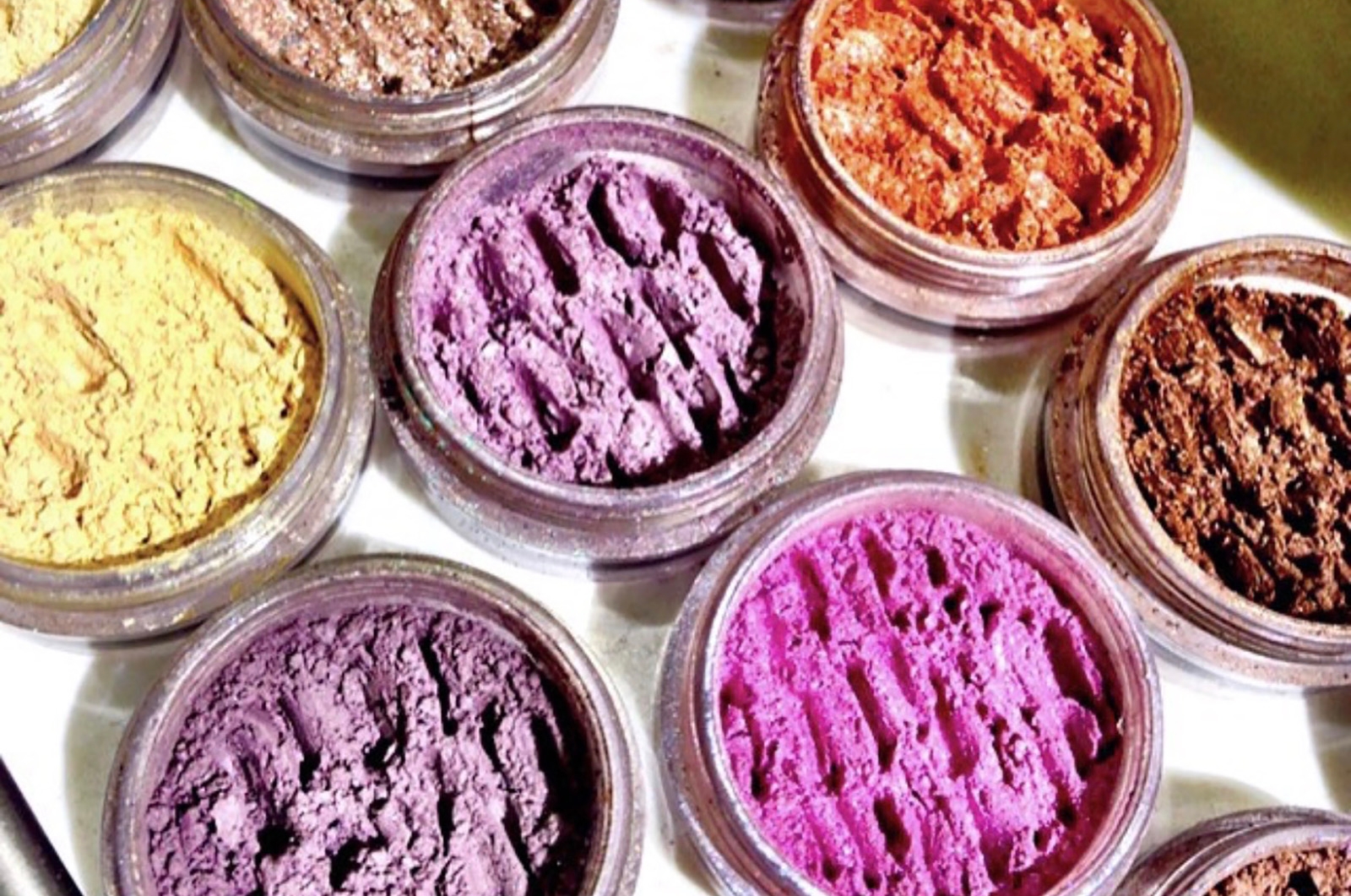The Queen of Beauty Gives “Pretty Good Advice”: An Interview with Leslie Blodgett, former CEO of bareMinerals

Leslie Blodgett turned a natural body care and aromatherapy business into the billion-dollar mineral makeup company bareMinerals. In 2006, she took the company public in one of the largest IPOs of the decade, and ultimately sold the business for $1.8 billion. The Queen of Beauty, as she’s been called, used the power of community and QVC to build a global brand. In her book, “Pretty Good Advice,” Blodgett shared her lessons on life and the beauty business. She spoke with Goldman about her entrepreneurial journey.
How did your personal background and upbringing influence your professional career?
I was an active kid with two siblings, raised by a single mom in Smithtown, Long Island. I worked odd jobs, saved money and was involved in school activities. As a kid, I was competitive but wasn’t singularly focused; my interests were broad and included sports, reading, crafts and theatre. As a high school student, I was proud to work at McDonald’s and climbed the ladder there, ultimately getting the top job — cooking Big Macs. I loved makeup and fashion and was influenced by TV sitcoms, Seventeen Magazine and beauty ads. The advertising for Charlie fragrance by Revlon portrayed a confident woman going to work in a pant suit and not at home doing dishes. Seeing modern women in these ads was a big deal. My biggest influence was my mother’s interest in the women’s liberation movement after her divorce. She was a strong role model who seized opportunities, stood up for herself and never financially relied on a man. She was bold and outspoken with an in-your-face style that I never adopted. However, I respected her, and also feared her a bit. Genuinely wanting to please my mom was a driver for me. I didn’t want to disappoint her.
What sparked your interest in mineral makeup? Why did you think it would resonate with customers?
I didn’t know it would resonate. I didn’t know I could convince people that it was the best option for them. Watching QVC, the home shopping network with 24 hours of live programming, is when I got the idea to take bareMinerals to TV. I was worried about hitting the numbers but was open to try anything. It was insane to sell foundation on TV as viewers didn’t have the ability to try it directly on the skin. Also, beauty brands hired models and actresses to be spokespeople for their brands. I was a regular person but had product development expertise. It was the honest approach to sharing the brand directly to women that made it resonate.
You’ve been called the “Queen of Beauty.” Do you see makeup as a form of self-expression?
Self-expression. Self-confidence. From the minimalists who stick to a quick routine to others who switch it up every day and play for creative expression, there is a range of makeup wearers. We should be celebrating any and all of it. As individuals, we need to take ownership of how we look, and cultivating that as a teenager is wonderful. I’ve always said that we need to love our appearance without makeup and free ourselves from the pressures that society and the media can place upon us. I think the goal is to look in the mirror makeup-free and happy with our reflection. When you are critical of your own appearance, it can influence other parts of your life. I’m not saying it’s easy. I’ve seen makeup do wonders for women’s self-esteem, but it needs to go deeper than makeup to make a lasting impact. And it’s not about embracing imperfections either. Who decides what an imperfection is anyway?
Makeup and fashion are constantly evolving. How did you keep your finger on the pulse of industry trends? What would you recommend to aspiring entrepreneurs?
That is a good question. My definition of pulse is different than yours. I follow journalists, stories and trends in and outside the industry — people, brands, products on social media. I also like to see who these people follow. I read publications, like Fast Company, Inc., Wired, The New Yorker and New York Magazine for general trends. Other than the brands I have invested in, I don’t go deeper on beauty and fashion anymore. I want a broader understanding of the world we live in. For pure tactics, I would recommend that aspiring entrepreneurs read constantly, soak up information and be organized about it. I keep a notebook going daily. I’ve had them for years. I date entries every morning, and when I read something interesting, I take notes. Also, on my iPhone I save articles in categories in my Notes app — new products, CEO interviews that interest me, supply-chain stories. I love following new brands and every move they make, like a case study happening in real time.
Whether phone calls, letter writing or social media, communicating with customers was key to the bareMinerals brand. Why is that open line of dialogue important to a company’s identity?
I always felt overwhelming gratitude for any interest in the brand. I wanted to learn more about our customers, listen carefully, respond to each one, and ultimately, honor their curiosity. Without a question, my customers helped me build the company. In my book, I have several stories about how my customers knew more than we did. Before we launched, we would get their opinions on new packaging, product names and formulas, which would almost guarantee success and make women feel part of the decision-making process. We were crowdsourcing before that word existed. It was a natural way for us to interact with our customers because we were interested in their thoughts and experiences. We were genuinely close to these women. We knew many them by name and even asked them to join meetings by phone. We respected and treated them as equals. When you joined the company, new employees had to write a handwritten letter to a customer and share something personal, so they could understand these were real people buying our products and not just a number on a spreadsheet.
In your book, “Pretty Good Advice,” you write about the ladder methodology to achieve your goals. How should one think about building their own ladders?
This was the part of the book about having a low bar, which always makes people double-take. For me, having a high bar that is too hard to reach isn’t motivating. I like the feeling of accomplishment. If I have achievable goals, then I get inspired to do more and more, and before you know it, all of those bars on top of one another become a ladder. Winning and crushing goals is fun and addicting.
What is your best piece of advice to share with other entrepreneurs or business professionals?
Find your toolbox of things that keep you motivated, inspired, creative and curious. Also, be aware of the times and triggers that made you feel paralyzed. Recognize that fears may never go away, but use them as an ally, a driver to move forward. Nowadays, we have more anxiety than ever. I think if you’re self-aware when you fall into a rabbit hole, you can use your toolbox to find your way out. We are all building resilience as we speak, and we may not even be cognizant it’s happening. Be present right now and celebrate every bar you clear.

Click the following link to watch Leslie Blodgett discuss her book and career.
This material is intended for educational purposes only and is provided solely on the basis that it will not constitute investment advice and will not form a primary basis for any personal or plan’s investment decisions. While it is based on information believed to be reliable, no warranty is given as to its accuracy or completeness and it should not be relied upon as such. Information and opinions provided herein are as of the date of this material only and are subject to change without notice. Goldman Sachs is not a fiduciary with respect to any person or plan by reason of providing the material herein. Information and opinions expressed by individuals other than Goldman Sachs employees do not necessarily reflect the view of Goldman Sachs. Information and opinions are as of the date of the event and are subject to change without notice.
© 2023 Goldman Sachs. All rights reserved.
Goldman Sachs & Co. LLC is registered with the Securities and Exchange Commission (“SEC”) as both a broker-dealer and an investment adviser and is a member of the Financial Industry Regulatory Authority (“FINRA”) and the Securities Investor Protection Corporation (“SIPC”)